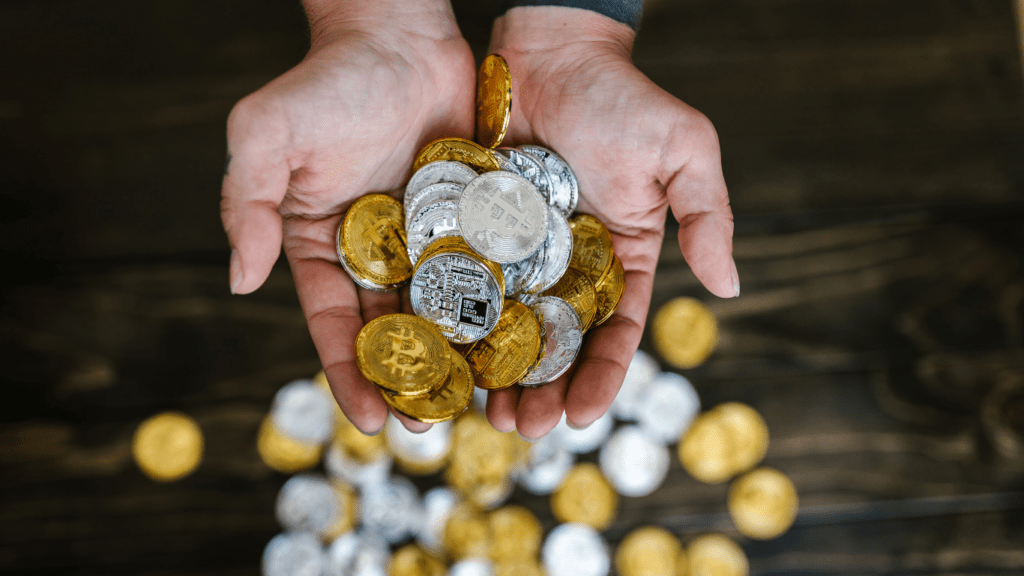Navigating the world of cryptocurrency can be exhilarating, but when it comes to converting your digital winnings into traditional fiat currency, things can get a bit tricky. In this article, I’ll guide you through the process of seamlessly transitioning your crypto gains into cash. Whether you’re a seasoned investor or a newcomer to the crypto space, understanding how to convert your winnings is essential for realizing the value of your investments.
From choosing the right exchange platform to exploring the most cost-effective conversion methods, I’ll share valuable insights to help you make informed decisions. Converting your crypto earnings into fiat is not just about cashing out; it’s about strategically managing your assets to maximize returns. Stay tuned to discover practical tips and strategies that will empower you to navigate the crypto-to-fiat conversion process with confidence.
Understanding Crypto Winnings
Understanding crypto winnings is crucial for effectively managing your investments in the cryptocurrency space. I’ll delve into the key aspects that are essential to grasp to make informed decisions when converting your crypto earnings into traditional fiat currency.
- Cryptocurrency Volatility: Crypto prices can fluctuate significantly within short periods. It’s important to be aware of this volatility as it can impact the value of your winnings when you decide to convert them to fiat.
- Tax Implications: Converting crypto to fiat may have tax implications depending on your country’s regulations. It’s advisable to research and understand how taxes apply to cryptocurrency transactions to avoid any legal issues.
- Conversion Fees: Different exchange platforms may charge varying conversion fees for converting crypto to fiat. Being mindful of these fees can help you choose a cost-effective method to minimize your expenses during the conversion process.
- Market Conditions: Monitoring market conditions is essential before converting your crypto winnings to fiat. Understanding the current market trends and factors influencing prices can help you optimize the timing of your conversions.
- Security Measures: Prioritizing security when converting crypto to fiat is paramount. Ensure that you use reputable and secure exchange platforms to safeguard your assets during the conversion process.
By understanding these key aspects of crypto winnings, you can navigate the conversion process with confidence and strategic acumen to maximize the value of your investments.
Steps to Exchange Crypto to Fiat
When converting cryptocurrency to fiat, it’s crucial to follow specific steps to ensure a smooth and secure process. Here are some key actions to consider:
Choosing the Right Exchange Platform
Selecting a reputable exchange platform is the first step in converting your crypto earnings to fiat. Look for platforms that offer competitive rates, have a user-friendly interface, and prioritize security measures. Popular exchanges like Coinbase, Binance, or Kraken are widely trusted in the crypto community for their reliability and ease of use.
Verifying Your Identity
Before exchanging crypto for fiat, most platforms require users to verify their identity to comply with KYC (Know Your Customer) and AML (Anti-Money Laundering) regulations. This process typically involves uploading identification documents such as a driver’s license or passport. Ensuring your identity is verified not only adds an extra layer of security but also allows you to access higher withdrawal limits on the exchange platform.
Tax Implications of Converting Crypto to Fiat
Navigating the tax implications of converting cryptocurrency to fiat is crucial for maximizing profits. When converting crypto to traditional currency, it’s important to be aware of the tax liabilities that may arise. In the United States, the IRS treats cryptocurrencies as property, not currency. This means that selling or exchanging crypto for fiat is considered a taxable event, similar to selling stocks or other forms of property.
As I convert my crypto earnings into fiat, I need to keep track of the gains and losses incurred during the process. Any profits made from converting cryptocurrency to fiat are subject to capital gains tax. The capital gains tax rate depends on how long I held the cryptocurrency before converting it. If I held the crypto for over a year before converting it to fiat, I’d be subject to long-term capital gains tax, which is generally lower than short-term capital gains tax rates.
It’s essential to report all cryptocurrency transactions accurately on my tax returns to remain compliant with IRS regulations. Failure to report crypto-to-fiat conversions could result in penalties or audits. Additionally, I should consider consulting with a tax professional or accountant to ensure that I accurately report my crypto gains and comply with tax laws.
Understanding the tax implications of converting crypto to fiat allows me to plan my investments strategically and make informed decisions. By staying informed about tax obligations, I can navigate the crypto-to-fiat conversion process smoothly and optimize my financial gains.
Tips for Seamless Conversion
When converting crypto to fiat, it’s essential to consider various factors to ensure a smooth and efficient process. Here are some valuable tips to help you navigate the conversion process seamlessly:
- Choose Reputable Exchanges:
Select well-established exchange platforms like Coinbase, Binance, or Kraken for converting your cryptocurrency. These platforms offer security, liquidity, and competitive exchange rates, ensuring a reliable conversion experience. - Verify Your Identity:
To comply with regulations and enhance security, complete the identity verification process on the exchange platform. This step is crucial for safeguarding your funds and preventing unauthorized transactions during the conversion process. - Monitor Market Conditions:
Stay informed about market trends and fluctuations in cryptocurrency prices before initiating the conversion. Timing your conversion when the market is favorable can help maximize your fiat gains and minimize potential losses. - Evaluate Conversion Fees:
Be mindful of conversion fees charged by the exchange platform. Compare fees across different platforms to choose the option that offers competitive rates and transparent fee structures, helping you retain more of your converted funds. - Secure Your Conversion Process:
Prioritize security measures such as two-factor authentication, secure passwords, and private key management throughout the conversion process. Protecting your assets from unauthorized access is paramount when moving funds between crypto and fiat. - Understand Tax Implications:
Educate yourself on the tax implications of converting crypto to fiat, particularly regarding capital gains tax. Accurately reporting your crypto transactions on tax returns is crucial to avoid penalties and comply with IRS regulations. Consulting tax professionals can provide valuable insights for tax-efficient conversion strategies.
By following these tips, you can streamline the conversion of your crypto winnings to fiat currency while mitigating risks and optimizing your financial gains. Each step contributes to a seamless and secure conversion process, empowering you to make informed decisions in the crypto-to-fiat transition.




